Writer Joseph J. Airdo // Photography by Blushing Cactus Photography
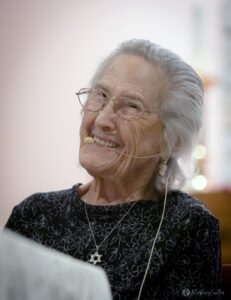


When director Steven Spielberg released the movie “Schindler’s List” in 1993, he donated his share of future profits to the Shoah Foundation — a nonprofit organization that documents audio and visual testimony of World War II Holocaust survivors.
One of the survivors who have recorded their stories is Prescott resident Esther Basch who, when asked how she felt about the Germans today, responded: “I cannot forget the horror they put me through. But I can forgive. Because if I do not forgive, then I suffer; and I have suffered enough.”
Basch will soon be the subject of her own movie that her daughter Rachel Turet hopes will change the way people live their lives and relate to their fellow human beings
“It is an intimate portrait of an innocent girl with a steadfast spirit who lives to teach the healing power of forgiveness to her fellow man,” Turet says. “My mother’s stories were etched into my being and impacted every relationship I have.”
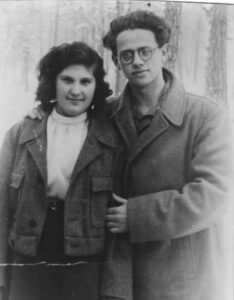


Story of Survival and Forgiveness
Basch was born on May 28, 1928, in Czechoslovakia.
“I had a very happy childhood,” she says. “I played with my friends. I climbed the Carpathian Mountains. The whole mountain [was filled] with grapes, strawberries and blueberries. I wanted to be the first one to pick them, so I was climbing faster and faster. But when the Germans came in, that ended.”
Basch and her parents were forced to leave their home and move into the ghetto — a four-square block area located across the street, where they would remain for six weeks with only bread or watery soup given to them once a day.
On May 23, 1944, Basch, her parents and the others held in the ghetto were loaded into a cattle car they were told was bound for “a better place.” Five days later, on Basch’s 16th birthday, the train arrived in Auschwitz — the largest of the German Nazi concentration camps and extermination centers at which more than 1.1 million men, women and children lost their lives.
Shortly after disembarking from the cattle car, Basch was forcibly separated from her parents — first her father, then her mother, both of whom she would never see again.
During her time in Auschwitz, Basch on multiple occasions crossed paths with physician Josef Mengele, known by his victims as the “angel of death,” who conducted inhumane medical experiments on prisoners. She was also sent to work in several German ammunitions factories and was forced to take part in a death march deeper into the country before being liberated on April 14, 1945, by American soldiers of the 84th Infantry — including Max Lieber.
“Max Lieber said ‘Open the gate. You are free,’” notes Basch, who then gorged on a jar of honey after being told that she could go into areas previously reserved for the Nazis and have anything she wanted. “I call him my American hero.”
In 2007, Basch’s daughter Rachel Turet tracked down Lieber and connected him with her mother. The meeting — during which they embraced and cried for 10 minutes — motivated Basch to tell her story of forgiveness via public lectures nationwide, hoping to transform society on issues of hate and prejudice.
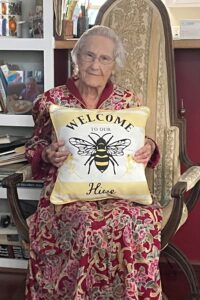


Free of Hatred and Animosity
Turet says that she had been approached on numerous occasions by individuals who wanted to produce a movie about her mother.
“The first few times we were asked, I said, ‘No,’ because I did not want to see another story out there about ovens and skeletons,” Turet explains. “But the third or fourth time I was asked, it occurred to me that that is not what my mother’s story is about. My mother’s story is about how to use the tools of love and forgiveness as a coping method and as a way to live a full life.”
Therefore, production commenced on “The Honey Girl” — a documentary that showcases Basch’s genetic and universal love of humankind that not only helped her survive her nightmare but also enables her to share her story in a poignant way that moves and motivates others to live lives free of hatred and animosity.
The film’s producer Suzanne D. Johnson says that despite the evolution of civilization, racism has not been curbed and the practice of genocide continues to live on.
“In the film, we witness the world around us today,” Johnson says. “A man wears a ‘Camp Auschwitz’ shirt during the attack on Washington; protesters picket a ‘Black Lives Matter’ march; Native American sacred lands are confiscated; Muslims and Asians are targeted. Today, we are still not free of the hatred and animosity that led to the Holocaust.
“This film is intended to be an educational tool. Even though World War II is relatively recent history, there are far too many people who know little about what happened — and some even deny that millions died.”
More than 100 hours of film have been shot pro bono by professional filmmakers, with fundraisers having covered all attendant expenses to date. “The Honey Girl” is now in its final editing phase, where $40,000 is needed to pay for post-production costs and distribution.
Ultimately, Turet hopes to see high school teachers utilize the finished film in their classrooms to help their students understand what it was like for her mother and others who were forced into concentration camps.
“Both the liberators and the survivors are up there in age,” she says. “Before we know it, we are not going to have a link to that time. When we speak at high schools, I tell the kids, ‘What I need you to know is that the woman sitting next to me may look a little old, but she was only 16 when she got off the train in Auschwitz and never saw her parents again.’ That connection hits home.”
It is also a connection that Turet has seen positively impact each and every person who meets Basch — especially her friends and neighbors in Prescott, all of whom Basch considers family.
“Everybody here in Prescott adores Mom,” Turet says. “We cannot go anywhere without somebody recognizing her and saying, ‘Hey, Mom!’
“The funniest thing was when she was hospitalized and was allowed only one guest at a time. One day, our friend who is a 6-foot-4-inch Navajo came in and said, ‘Mom! Mom! Are you OK?’ After he left, our musician friend who is Asian came in, panic-stricken, and asked, ‘Mom, how are you doing?’ This went on throughout the day and, that evening, the nurse came in and asked, ‘So, Esther, just how many kids do you have?’”
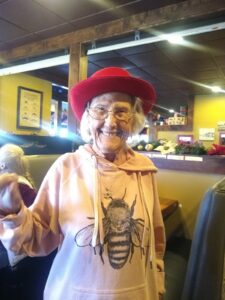


Secrets to a Long and Happy Life
Basch is well aware and proud of the differences she is making in the lives of people not just here in Arizona but across the country, and hopes that her documentary will serve as a lasting testament to the healing and restorative power of forgiveness.
“One time, when we were speaking at a college, I finished my story and a man came up to me and thanked me,” Basch says. “He said, ‘I have not spoken to my brother in 20 years. But if you can forgive the Germans, then I can go home, call my brother and tell him that I forgive him.’ That warmed my heart.”
Basch adds that she strongly believes in her message of forgiveness, noting that it is one of the secrets to living a long and happy life.
“Be good,” Basch says. “And if you cannot do anything good, then just do not do anything bad. Love people. Love God. Think positive. And you will have a happy life — which I do.”
Turet jokes that her mother, who — celebrating her 95th birthday this month — has been in and out of the hospital due to everything from falling accidents to heart attacks, is on No. 12 of her nine lives.
But Basch has a very good explanation for this: “I feel very strongly that if Hitler did not kill me, then nothing will.”

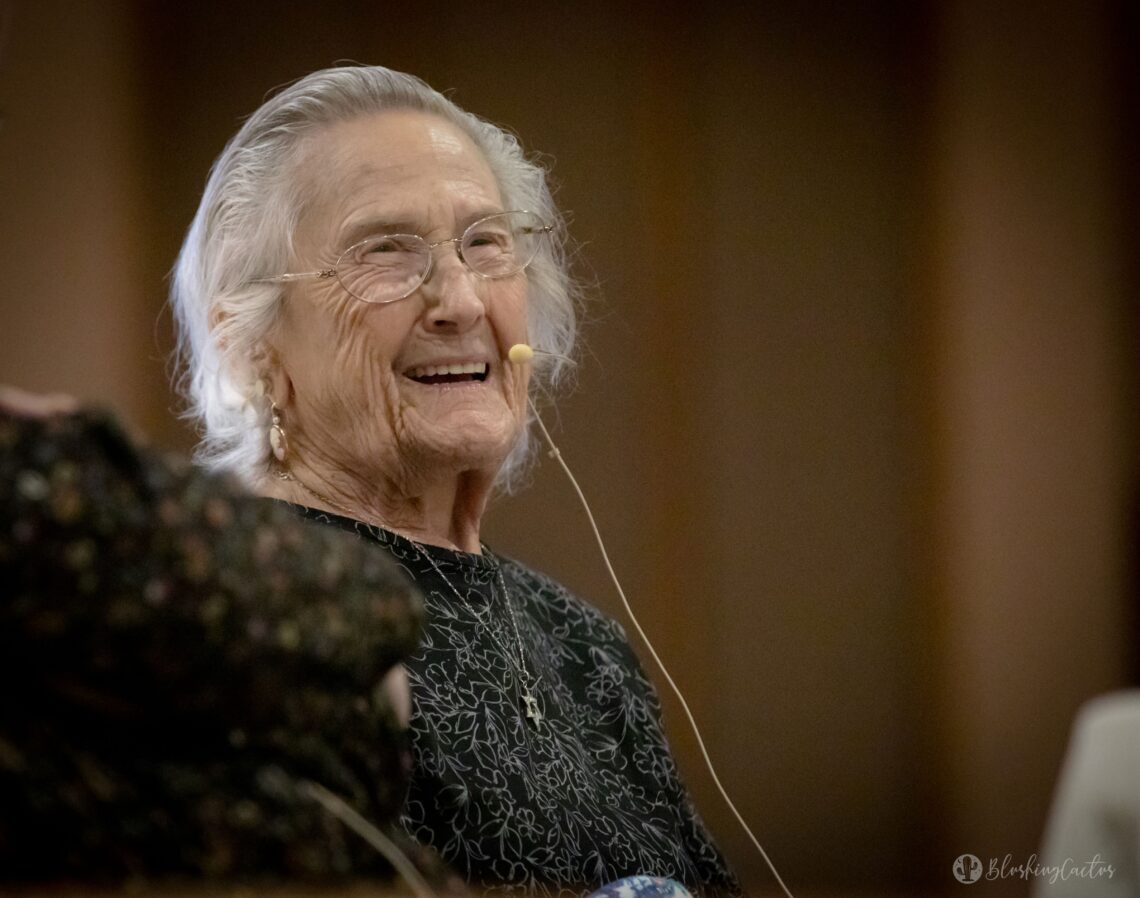





Comments by Admin